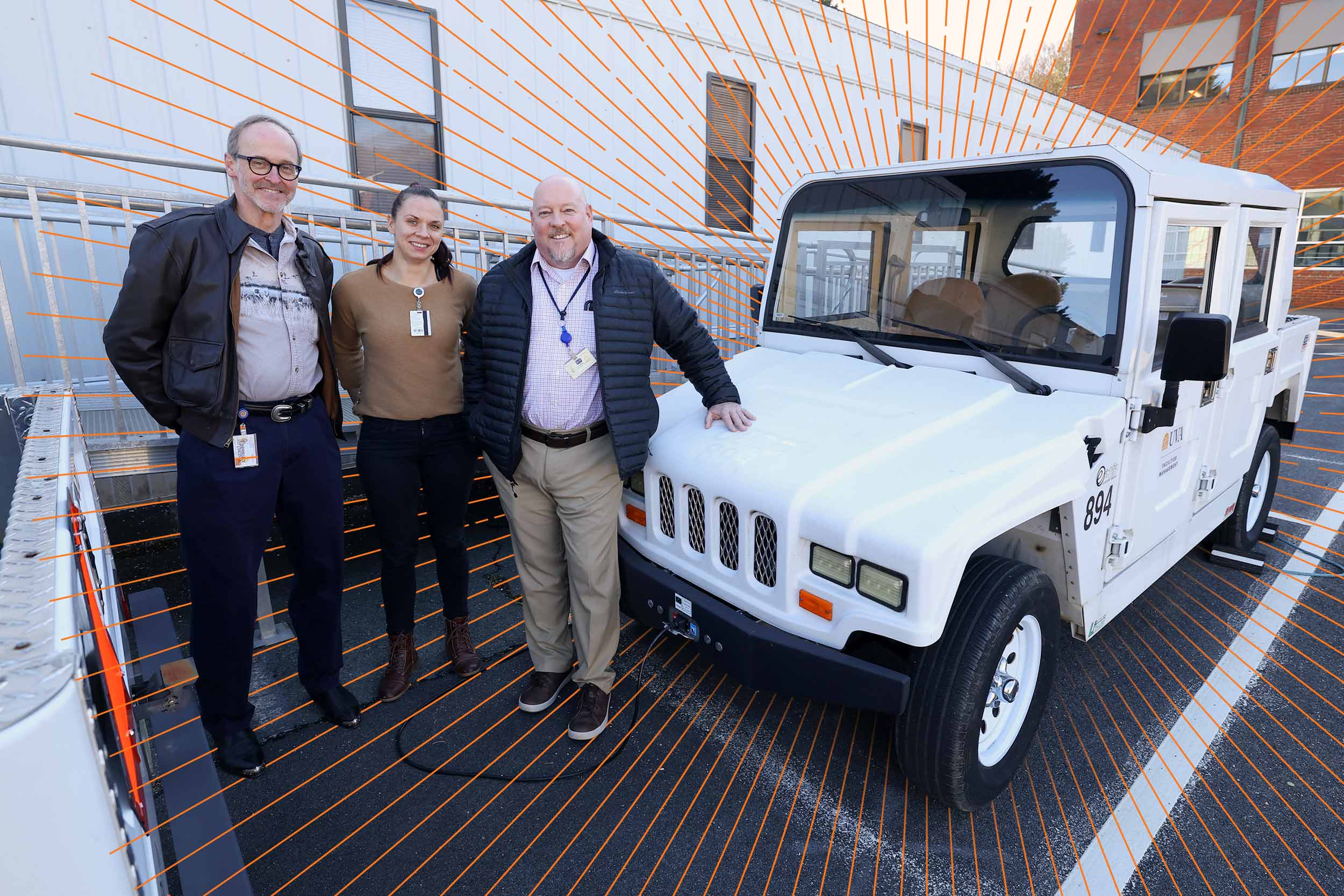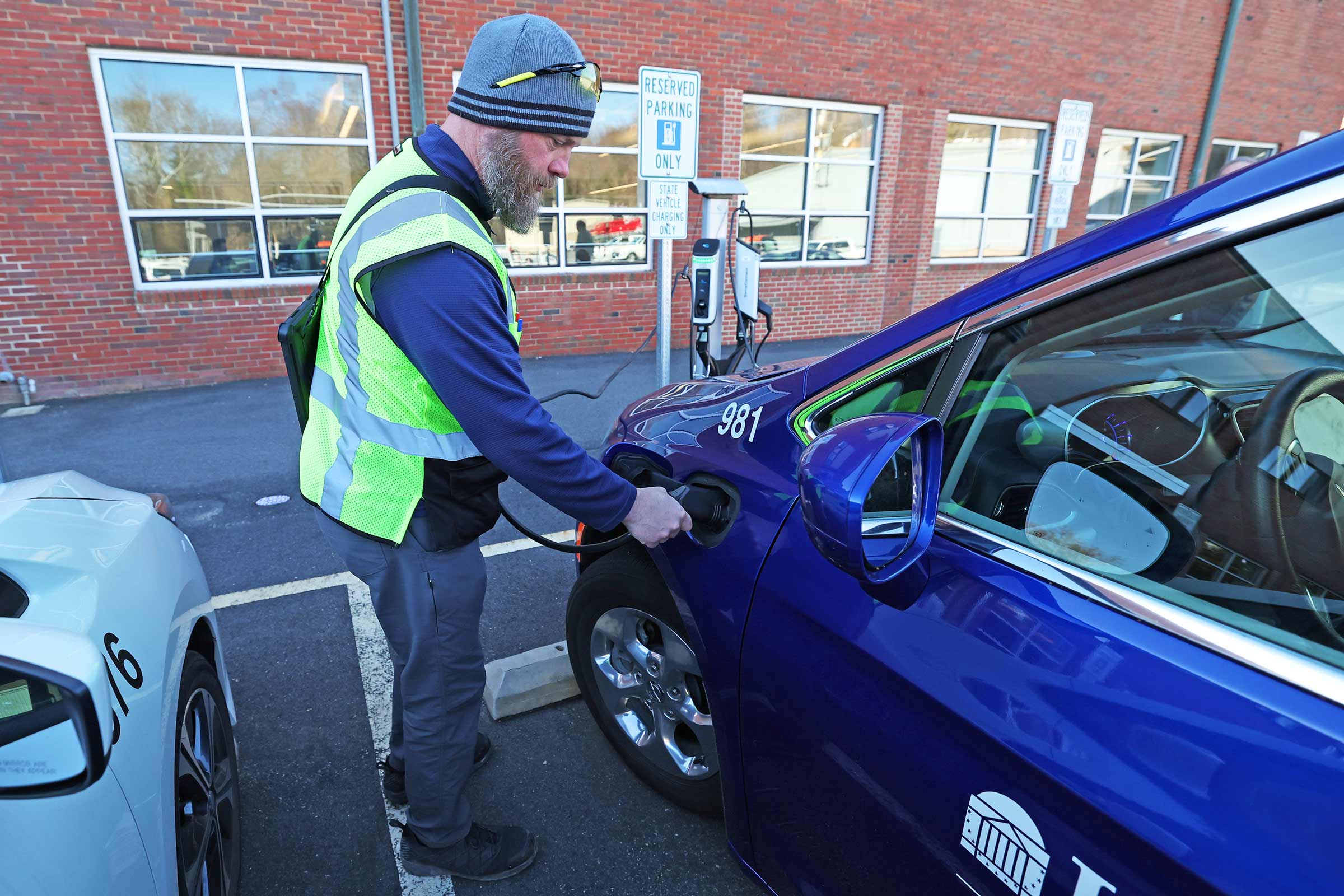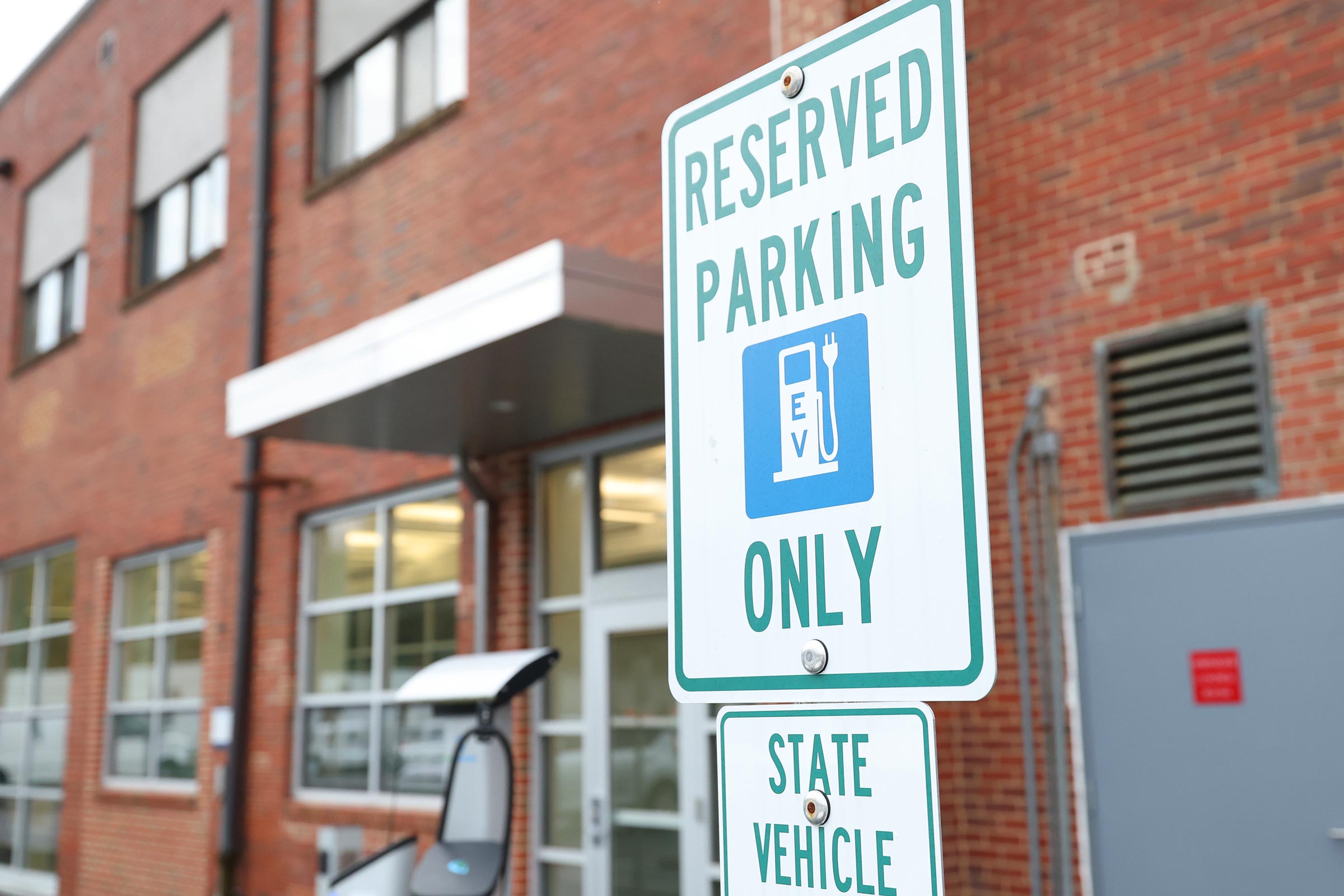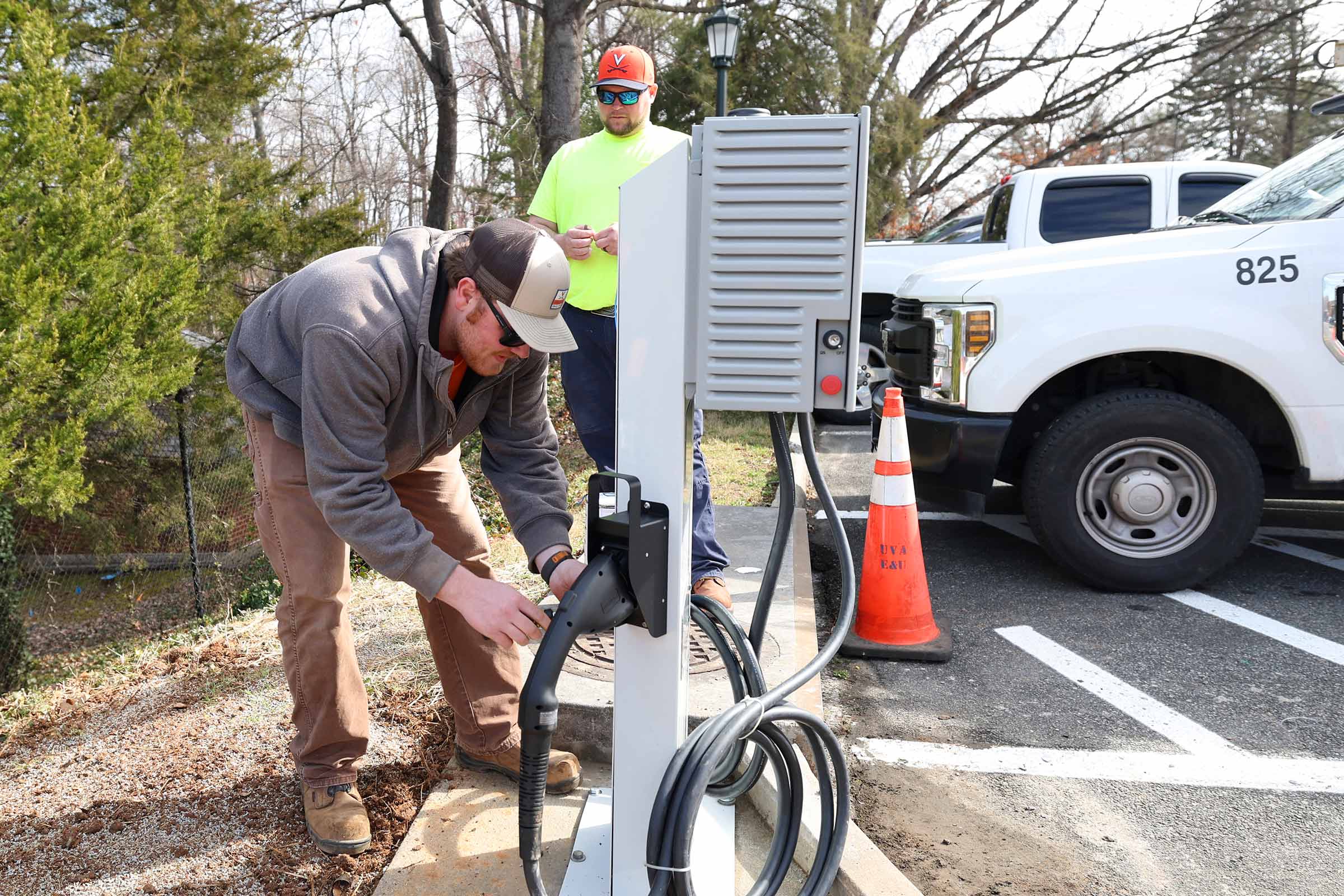It’s getting a little greener and quieter on Grounds.
The University is in the process of converting its vehicle fleet, equipment and tools to battery-powered models. Starting with a 2018 vehicle purchase from E-ride industries, about 13%, or roughly 35 vehicles, of the University’s Facilities Management fleet, are battery-powered, with 24 charging stations to keep them going.
Facilities Management’s electric vehicle usage from 2020 through 2023 has increased by 275%, which is roughly 9% of Facilities Management’s total annual miles driven.
At the same time, Facilities Management’s landscaping department has been converting to battery-powered tools.













